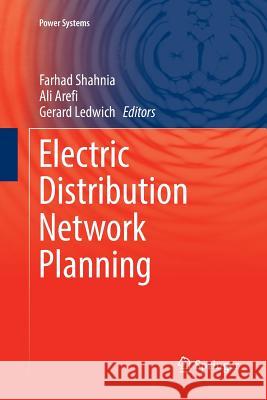Electric Distribution Network Planning » książka
topmenu
Electric Distribution Network Planning
ISBN-13: 9789811339110 / Angielski / Miękka / 2018 / 381 str.
Kategorie:
Kategorie BISAC:
Wydawca:
Springer
Seria wydawnicza:
Język:
Angielski
ISBN-13:
9789811339110
Rok wydania:
2018
Wydanie:
Softcover Repri
Ilość stron:
381
Waga:
0.55 kg
Wymiary:
23.39 x 15.6 x 2.08
Oprawa:
Miękka
Wolumenów:
01
Dodatkowe informacje:
Wydanie ilustrowane











